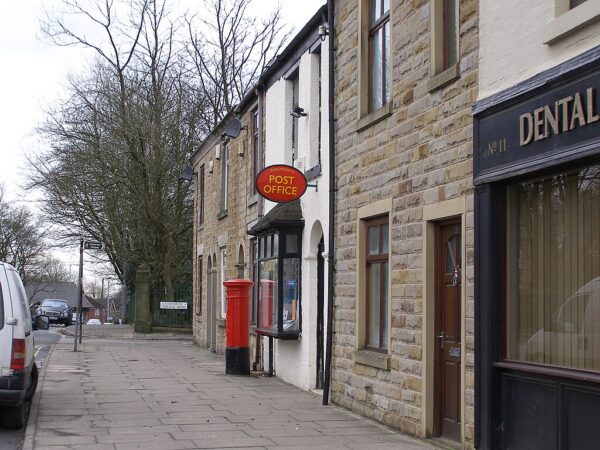Chancellor Rishi Sunak delivered the new budget on Wednesday March 3, saying that “an important moment is upon us, a moment of challenge and of change” for the UK.
Mr Sunak admitted that we are facing one of the longest and most sustained economic shocks the UK has ever faced, at a cost of over 400 billion and a worse economic hit than many other nations. The Chancellor said he “recognises some decisions may not be popular but they are honest”.
Importantly for retail businesses, the rates holiday will continue for the first three months of the fiscal year, until the end of June. For the rest of the year business rates will be discounted by two-thirds, up to a value of £2 million, with a lower cap for those which stayed open throughout lockdown. For hospitality and tourism the 5% reduced rate of VAT will be extended until September 30, then it will be followed by an interim rate of 12.5 percent until April 2022, at which point it will return to 20%.
The rates holiday figured at the top of the British Independent Retailers Association (Bira) wishlist for the budget, as did an extension of the furlough scheme, which the Chancellor also confirmed would take place until September. Bira also wanted an extension of the legal moratorium preventing landlord from taking action against tenants unagble to meet rent demands, currently due to end on March 31.
Business grants schemes that ended in March will restart in April to help businesses reopen. Non-essential retail is to open first and grants of up to £6000 per premises will be available to help with this process. Hospitality and leisure, which will open later, can claim up to £18000 of grants. This takes the total cash support for business up to £25 billion. A further £700 million will be made available for arts, culture and sporting institutions.
A new economic campus will be established in Darlington to “help redraw the economic map”. This will include over £1bn for 45 new town deals around the UK and additional funds that will help citizens to save cherished local businesses. The first round of ‘levelling up’ funds will be launched today and applications are invited.
However, the growth forecast is fairly optimistic, with the economy set to grow 4% this year and 7% next year, amid estimates that the British economy will be back to normal six months earlier than expected, by November 2022.
The furlough scheme will be extended until the end of September, with no change to terms for employees. As businesses reopen they will be asked to contribute more to the scheme. Nothing will change until July, when a contribution of 10% will be asked, rising to 20% in August and September.
Support for self-employed will also continue until September with a fourth grant available for Feb to April and a final grant from May onwards. Those whose turnover fell by 30% or more will receive the full 80% grant, but those whose turnover fell by less than 30% will receive 30% grant.
Those who are newly self-employed and were previously excluded from support schemes can now claim because the tax return deadline has passed. Provided they filed a tax return in January, over 600,000 more people can now claim the fourth and fifth grants.
The National Living Wage will increase to £8.91 of national living wage and there will be a doubling to £3000 of incentive payments for businesses to hire new apprentices. New traineeships will be tripled.
There will be a new recovery loan scheme for businesses of up to 80%, guaranteed by Government.
Tax measures
Borrowing has reached 17% of national income, the highest level it has been at since WWII. Next year it will be 10% of GDP and corrective action is needed now to bring it down, bearing in mind interest rates may not be low forever.
The personal tax threshold will be frozen for both the lowest and higher rates, although it will be increased next year. The inheritance tax and pensions lifetime allowance will be maintained until 2026. There will be no change to the VAT threshold.
From April 2023 corporation tax paid on profits will increase to 25%, although the UK will still have the lowest corporation tax rate in G7. The increase only applies to bigger businesses. Small businesses with below £50,000 profit will operate at a ‘small profit rate’ of 19% (the current rate of corporation tax), meaning that around 70% of companies will be unaffected by the tax hike. Ten per cent of the biggest companies with profits over £250,000 will pay the full highest rates, however, the tax treatment of losses will be more generous, allowing companies to carry back losses of up to 2 million for three years and claim tax refunds of up to £760,000.
Existing stamp duty measures will be extended until June 30 and the Government will guarantee 95% mortgages.
Mr Sunak said there was a need to unlock the cash reserves of high performing businesses so, for the next two years, when companies invest, they can reduce their tax bill not just proportionately but by 130% of the cost. This kind of ‘super reduction’ has never been tried before in this country, hoping to boost business investment by 10 per cent, perceived by business groups as a very positive measure. This was described as the “biggest business tax cut in modern British history, an unprecedented action to get companies investing”.
Later in the budget, the Chancellor confirmed that duties on wine, spirits, beer and cider will all be cancelled and fuel duty is also cancelled.
The Chancellor expressed great optimism for the future, but explained: “If we want a better future economy we have to make it happen, we have to do things we’ve never done it before…we need a real commitment to growth…to enable companies to grow and succeed, to change the economic geography of this country”.
Investment in green industry was part of this agenda, with the first ever green infrastructure bank to be located in Leeds, with a remit of investing in public and private projects to finance the green revolution. There will also be new retail savings product to enable consumers to support green projects.
A new set of UK wide schemes designed to help small businesses have also been launched under the Help to Grow banner. The Management side of the project will incorporate dozens of business schools and executive development programmes around the country, to which the Government will contribute 90% of costs. The Digital side will help SMEs develop digital skills. For more information on these schemes visit: Gov.UK/helptogrow.
As the UK’s successful vaccine rollout scheme continues, Mr Sunak said that being a “scientific superpower is in our grasp” and that he wants the UK to be best place in the world for high growth innovative companies. To this end there will be Visa reforms aimed at highly skilled migrants, including new points based Visa to attract the best international talent in science and tech.
High growth, entrepreneurial firms also need access to capital, therefore the pensions industry will have more flexibility to invest in new ventures, also measures to encourage more companies to list in London.
The Chancellor highlighted how our future economy depends on us remaining a United Kingdom, explaining that our coronavirus response has been possible because of a central treasury. There will be a series of accelerated Scottish and Welsh city deals to support the Union and an increase in funding for devolved administrations via the Barnet formula.
A new economic campus will be established in Darlington to help redraw the economic map. This will include over £1bn for 45 new town deals around the UK and funds that will help citizens to save local businesses. The first round of ‘levelling up’ funds will be launched today and applications are invited.
The Chancellor was also pleased to launch a brand new freeports scheme, whereby special economic zones will be created to make it easier to do business. As part of the new measures these will have simpler planning and infrastructure funding and lower taxes, delivering an “unprecedented economic boost across the UK”. The first eight freeport locations are East Midlands Airport, Felixtowe and Harwich, Liverpool, Plymouth, Solent, Thames and Teeside.
Craig Moore, partner and head of law firm, Womble Bond Dickinson’s, Plymouth office, comments: “We warmly welcome the Government’s decision to set up a Freeport in Plymouth. A Freeport in the city will bring millions of pounds of investment, create around 10,000 new jobs as well as support some the UK’s key sectors such as transport, infrastructure, clean energy and, in particular manufacturing.
“Drawing on clear evidence from successful Freeports around the world, the Government’s proposed model for Freeports present a range of tax incentives, planning and other regulatory flexibilities that are designed to encourage businesses to open, expand and invest in the zone. The economic potential of a Freeport in the region cannot be underestimated – it is huge – and will play an important role in levelling up the UK economy and in strengthening the UK’s trading position in this key strategic location. We’re extremely proud and excited that Plymouth was chosen as the home of a new Freeport, following the successful bid from Plymouth, South Hams and Devon Councils.”

















